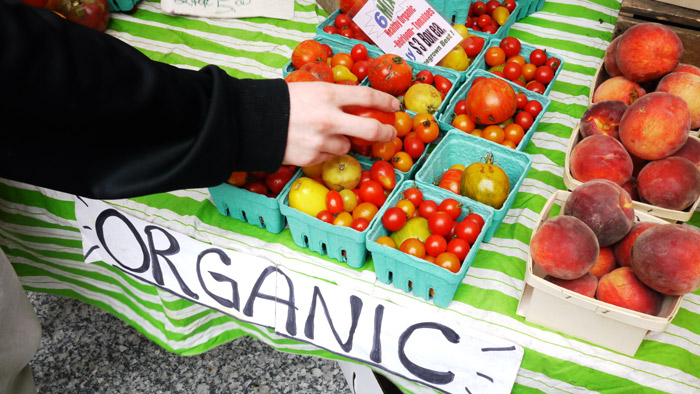While findings on the health benefits of eating organic foods are encouraging, the research still has key limitations
Eating more organic foods could help prevent cancer, according to researchers who say a range of cancers were lower among those who consumed organic foods more often.
Participants who ate the most organic food were 25% less likely to be diagnosed with cancer compared with those eating the least, which the investigators think may be the result of less pesticide exposure.
According to European food safety data, half of all conventionally produced food samples have pesticide residue, whereas the proportion drops to 6.5% in organic products.
US research had also found that adults who ate more organic foods had lower pesticide levels in their urine, the researchers explained.
“Although the study findings need to be confirmed, promoting organic food consumption in the general population could be a promising preventive strategy against cancer,” the French authors wrote.
The prospective cohort study tracked self-reported information about the physical activity, diet, lifestyles, health status and anthropometrics of 69,000 French adults over several years.
Of the 1340 incident cancers identified, breast cancer accounted for one in three, one in seven were prostate cancer, one in 10 were skin cancers and the rest were colorectal cancers and lymphomas.
Those eating the most organic food were less likely to be diagnosed with postmenopausal breast cancer, non-Hodgkin lymphoma and all lymphomas, but there were no changes to the other cancer incidences.
In absolute terms, those whose organic food consumption put them in the top quartile had an absolute risk reduction of 0.6% compared with those in the lowest quartile.
In an accompanying editorial, the authors praised the study for its large sample size, prospective design and modest loss to follow-up, but said there were important limitations. Because the questionnaire was not validated, the authors could not be confident of what they were tracking when they measured the level of organic food consumption.
“Organic food intake is notoriously difficult to assess, and its self-report is highly susceptible to confounding by positive health behaviours and socioeconomic factors,” they wrote.
The investigators did find that those eating more organic foods were more likely to have a diet rich in fibre, vegetable proteins and micronutrients, as well as to be eating more fruits, vegetables legumes and nuts and less potentially harmful foods such as processed meats.
While previous research had found that switching participants from a diet of conventionally grown food to organic food lead to a decrease in levels of pesticides found in their urine, the commenters pointed out that as yet there was no evidence that self-reported organic consumption was associated with lower pesticides in the body.
“At the current stage of research, the relationship between organic food consumption and cancer risk is still unclear,” they wrote.
“For overall health, current evidence indicates that the benefits of consuming conventionally grown produce are likely to outweigh the possible risks from pesticide exposure,” they added.
JAMA; online 22 October


